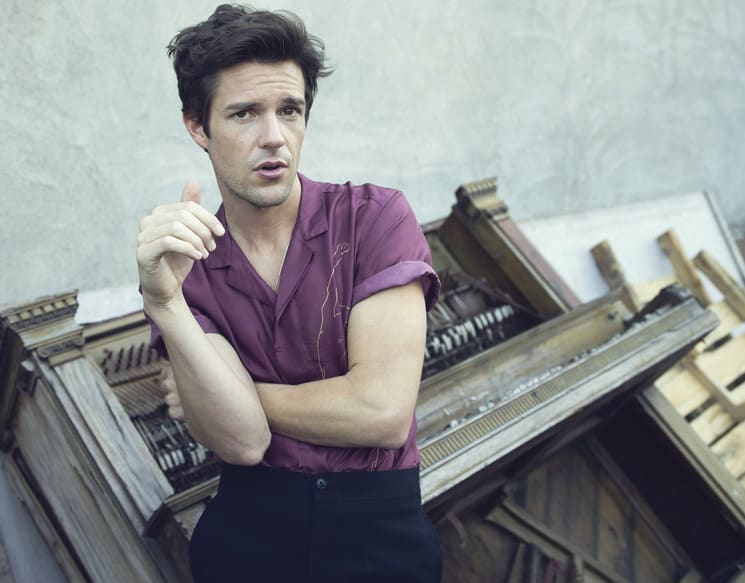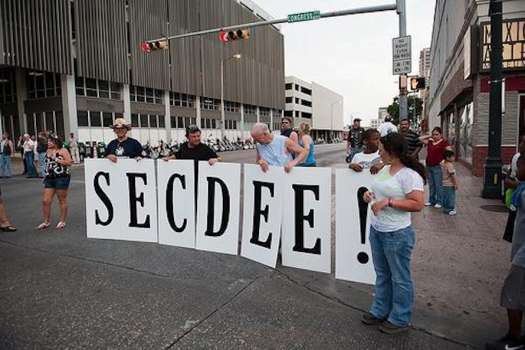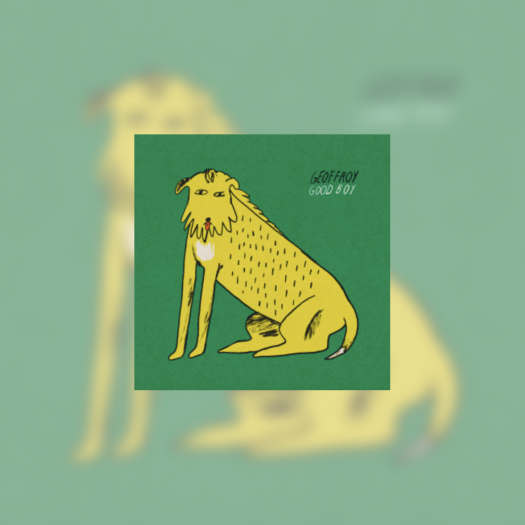"For the first eight or nine years of my life all I heard was '80s music, so it's a part of me, I guess."
Brandon Flowers is known as the frontman for the Killers, a band that have sold more than 22 million albums worldwide with a sound that was undeniably indebted to bands like Duran Duran and New Order. And while descriptions of his band rarely occur without referencing the decade of his birth, it's Flowers' second solo album, The Desired Effect, that is the most '80s influenced record he's made to date — not to mention his best.
"I made a lot of demos, and in those, there are all kinds of influences and different eras," he says. "I didn't recognize it until later on, but Ariel went through all of my demos and helped choose the palette for my album. And it wasn't until it was about time for it to be released that I realized he seemed to have an eye on something and have more of a plan than I thought."
The Ariel he speaks of is Ariel Rechtshaid, the current go-to producer for indie (Vampire Weekend, Tobias Jesso Jr.) and big-time pop stars (Madonna, Beyoncé). Flowers describes his collaboration with Rechtshaid on The Desired Effect as "a perfect fit," because "in this position I wasn't in the confines of a band, and I could do what I wanted to do."
This freedom meant that he could invite pretty much anyone on his wish list — whether it was Danielle Haim, whose 2013 album, Days Are Gone, Rechtshaid produced, or, you know, soft rock star Bruce Hornsby.
"We kept referencing him, with the phrasing we used on the piano," Flowers explains. "Now, I'm a decent piano player… I don't even know if I'm decent. I'm okay. And so at one point we finally said, 'Let's just call him.' And it was very easy to get a hold of him, and it was a pleasant surprise. He's a nice guy and really accommodating. He seemed to love the songs and what he was playing."
On The Desired Effect, Flowers has covered all of his influences, obvious or not. He fuses rockabilly with synths on "Digging Up the Heart," pairs Caribbean vibes with gospel backing vocals on "Still Want You," and flat out cops Bronski Beat's 1984 classic "Smalltown Boy," which he reworks for "I Can Change." That song in particular was his response to a request by his label for a collaboration with an EDM artist.
"I wasn't going to hold back on this record and I wanted to really go for it," he says. "I've always loved that song, and my record label was hounding me about singing on a DJ's track. And I got sent this progression that ended up being pretty close to 'Smalltown Boy,' and then I was just messing around in the studio one day and decided to try my hat at sampling. It ended up working really well."
Brandon Flowers is known as the frontman for the Killers, a band that have sold more than 22 million albums worldwide with a sound that was undeniably indebted to bands like Duran Duran and New Order. And while descriptions of his band rarely occur without referencing the decade of his birth, it's Flowers' second solo album, The Desired Effect, that is the most '80s influenced record he's made to date — not to mention his best.
"I made a lot of demos, and in those, there are all kinds of influences and different eras," he says. "I didn't recognize it until later on, but Ariel went through all of my demos and helped choose the palette for my album. And it wasn't until it was about time for it to be released that I realized he seemed to have an eye on something and have more of a plan than I thought."
The Ariel he speaks of is Ariel Rechtshaid, the current go-to producer for indie (Vampire Weekend, Tobias Jesso Jr.) and big-time pop stars (Madonna, Beyoncé). Flowers describes his collaboration with Rechtshaid on The Desired Effect as "a perfect fit," because "in this position I wasn't in the confines of a band, and I could do what I wanted to do."
This freedom meant that he could invite pretty much anyone on his wish list — whether it was Danielle Haim, whose 2013 album, Days Are Gone, Rechtshaid produced, or, you know, soft rock star Bruce Hornsby.
"We kept referencing him, with the phrasing we used on the piano," Flowers explains. "Now, I'm a decent piano player… I don't even know if I'm decent. I'm okay. And so at one point we finally said, 'Let's just call him.' And it was very easy to get a hold of him, and it was a pleasant surprise. He's a nice guy and really accommodating. He seemed to love the songs and what he was playing."
On The Desired Effect, Flowers has covered all of his influences, obvious or not. He fuses rockabilly with synths on "Digging Up the Heart," pairs Caribbean vibes with gospel backing vocals on "Still Want You," and flat out cops Bronski Beat's 1984 classic "Smalltown Boy," which he reworks for "I Can Change." That song in particular was his response to a request by his label for a collaboration with an EDM artist.
"I wasn't going to hold back on this record and I wanted to really go for it," he says. "I've always loved that song, and my record label was hounding me about singing on a DJ's track. And I got sent this progression that ended up being pretty close to 'Smalltown Boy,' and then I was just messing around in the studio one day and decided to try my hat at sampling. It ended up working really well."




